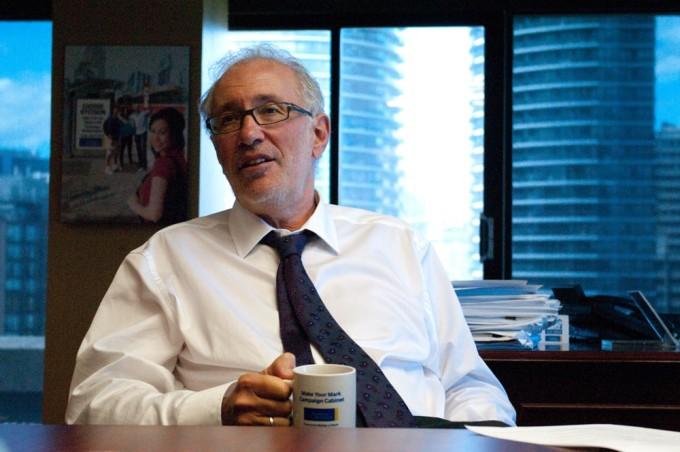As Ryerson prepares their annual budget, the university is anticipating a three per cent gap in the university-wide budget. Diana Hall reports
Ryerson is anticipating a three per cent gap in the university-wide budget for the 2012-13 school year. Ryerson president Sheldon Levy made the annoucement Jan. 25, asking all units to reduce their spending by three per cent to account for the potential gap.
Salaries, pensions and benefits that the university must cover will rise and so will their spending budget.
About 80 per cent of the budget is used to cover these costs, but it will still be approximately three per cent too low.
“Our costs are going to go up over five per cent next year,” Levy said Monday morning. “Everyone’s budget will be going up but it won’t go up high enough, and that’s why the reduction is necessary.”
Although Ryerson has announced the budget cuts, a lack of key funding information from the provincial government has forced the university to remain vague on the details.
The provincial budget — which will outline university funds and grants following the release of the Drummond Commission’s Report — will be laid out at the end of March.
Until then, the university can only speculate as to how the cuts will affect different areas of the school.
“On the one hand, you say it’s not a huge cut,” Levy said. “But on the other hand, if every year three per cent [is cut], it will be problematic for many areas and I think some areas will indeed have difficulty with it.”
Melissa Palermo, Ryerson Students’ Union’s vice president education, explained that continued cuts could lead to increased academic strain and problems relating to lack of access for students in all faculties.
“Those are some of the biggest things that students see: larger class sizes and making it harder to get into courses — and less time with their professors,” Palermo said.
She continued to say that budget cuts can delay upgrades or access to classroom materials and specifically as Ontario’s tuition fees are already the highest in the country.
However, Dr. Gervan Fearon, assistant professor in the department of economics and dean of the G. Raymond Chang School of Continuing Education, said that decreases or gaps in university budgets are common challenges that post-secondary institutions face.
“I would say that we’ve seen this before for universities,” he said. “I would also say that I think that this is true for Canada and for Ontario, and in fact, given the recent broadbased economic downturn, that governments across Canada have been actually relatively effective at managing budgets.”
Fearon also pointed to the outcome budget pressure may have upon Ryerson’s investments and developments.
He said that savings might be discovered by means of innovative thinking and more efficient approaches to student services.
“What we’ve seen so far is that the priorities have generally been to ensure that good academic programming is done for students, that it’s transparent, that there’s consultation — that these aren’t things that are done in isolation, away from discussions with students and discussions with faculties,” Fearon said.
Levy will host a town hall meeting next month to generate discussion and new ideas in the face of the budget discrepancy and students are welcome to attend.
The date and time of the meeting will be announced in the next issue of Ryerson Today.










Leave a Reply